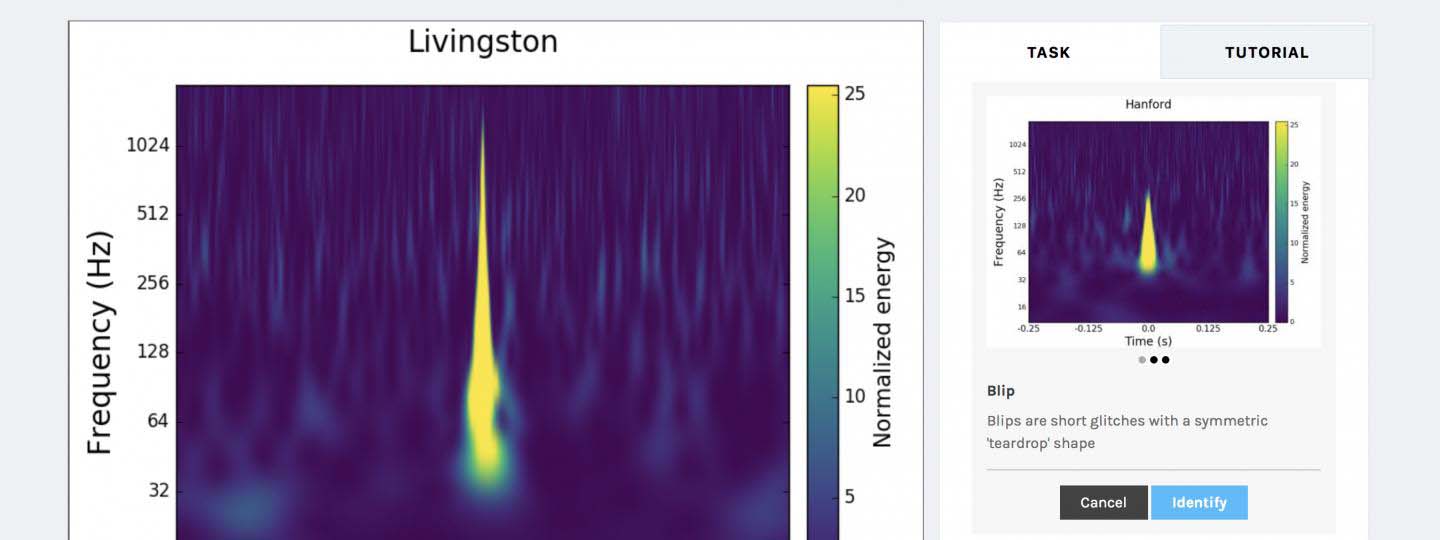Replacing Pluto, detecting earthquakes: Zooniverse turns students into mini scientists

Pluto may have exited the planet club, but San Jacinto College students are searching for its replacement.
"Backyard Worlds: Planet 9" and other online Zooniverse projects are engaging North Campus earth science students in citizen science — public participation in research to increase scientific knowledge.
Whether looking for the Milky Way's new ninth planet, listening to earthquake audio clips, or tracing meteors, these non-science majors use Zooniverse not only to advance scientists' work but also to grasp the scientific research process.
No-brainer
For College geology professors Dr. Liana Boop and John-Franklin Dzuryak, Zooniverse was a no-brainer.
After learning about the website at a teaching conference, Boop got Dzuryak on board. In summer 2019, they began implementing Zooniverse in their online earth science classes.
Since people often recognize patterns better than computers, scientists use Zooniverse to crowdsource data analysis. While it sounds fancy, data analysis can be as simple as outlining a meteor streak in an image. This human input then helps train computers to classify specific data.
"The cool thing about these projects is you don't need to know the science behind them to contribute to the work," Boop said. "Ultimately, what we want students to walk away with is a taste of what real scientific research entails."
Classified information
After creating individual Zooniverse accounts, students complete at least 50 classifications each across eight visits. Throughout, they journal about their challenges and discoveries and finally collaborate on a virtual presentation with teammates to share with the entire class.
"The fun part is you can see the frustration and confusion at the beginning," Dzuryak said of reading their journal entries. "At the end: 'I did all these extra classifications!' It's a neat way to see them grow."
Business student Manuela Garcia went into the classifications expecting a challenge, having run across X-rays and case studies in her dental assistant job.
"I thought it was hard before even getting into it," Garcia said.
Her team worked on the "Radio Meteor Zoo" project, tracing meteors and meteor showers from data collected by the Belgian Radio Meteor Stations network. The meteors appear as bright elongated teardrops against a cerulean background.
Not only did Garcia find the classifications more intuitive than expected, but she also took the project one step further, researching how the images are captured and data is used. In all, she finished 156 meteor classifications.
Hooked on her new hobby, Garcia signed up for four extra Zooniverse projects to do outside class.
"I get excited knowing I'm helping with a project that could help discover something or help the environment," she said. "I feel like I'm a part of science."
Decision-making 101
Zooniverse projects have many benefits. Students often ask, "How is this class relevant?" Dzuryak says they can look no further than a work project or major decision.
"We're not expecting anyone to become a biologist or chemist," he said. "You're given this task — you're given instructions — but it might not be enough for you. What if you have a boss who gives you a task you don't know how to do? How do you do that?"
When students do a Zooniverse classification, they are working with incomplete data but must make as informed a decision as possible.
"The project builds their science skills and confidence," Dzuryak said. "If you work through it, get through it, you become more confident."
Discovery zone
Does the prospect of dabbling in scientific research intrigue you? Dzuryak suggests becoming a Zooniverse citizen scientist. After all, there's hardly anything cooler than being the person to discover the ninth planet.
"Students didn't find anything, but it would have been a cool thing if they had," Dzuryak said. He lowers his voice, letting this mind-boggling thought sink in: "You could be the one."
Learn more at zooniverse.org.
Citizen Scientists
-
Planet Four: Terrains (identifying different surfaces on Mars)
-
Gravity Spy (detecting elusive gravitational waves predicted by Einstein)
-
Earthquake Detective (classifying seismic events by listening to wave frequencies adjusted to audible pitches)
